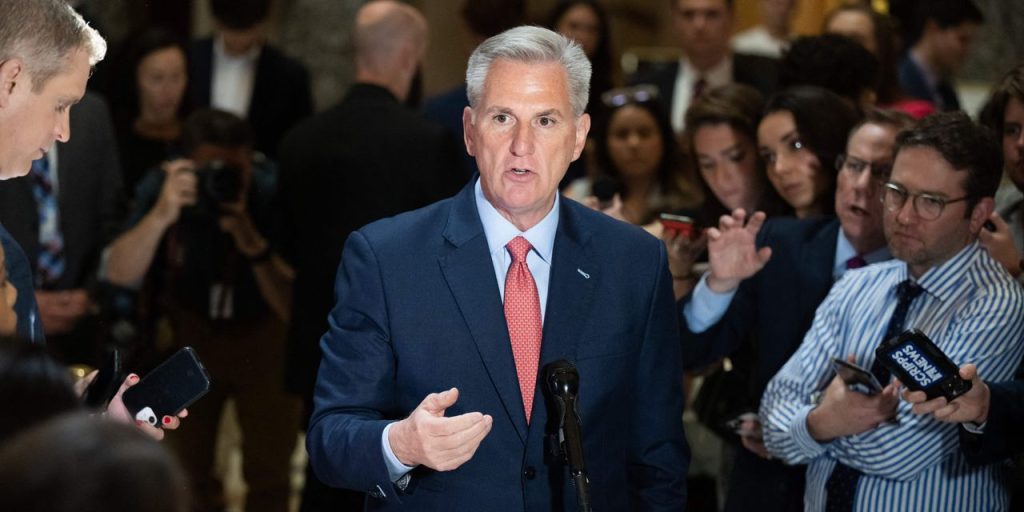U.S. Speaker of the House Kevin McCarthy said progress is being made in debt talks.
AFP via Getty Images
Treasury Secretary Janet Yellen has given President Joe Biden and House Speaker Kevin McCarthy a few more days to hash out their differences on the debt ceiling.
In a letter to McCarthy dated Friday, Yellen said the so-called X-date for the government to run out of money is now June 5. After that, the Treasury’s “extraordinary measures,” which it has been doing since early this year, won’t be able to cover the government’s bills.
Yellen had originally penciled in June 1 as the date that the government would default on its debt.
Biden and McCarthy seem to be reasonably close to reaching a deal but are heading into the long Memorial Day weekend.
An outline of a deal has emerged that would raise the debt ceiling for the next two years and that would cap overall federal spending. It may possibly claw back some of the $80 billion that Congress had approved to strengthen tax collection by the Internal Revenue Service, The Wall Street Journal reported, citing unidentified people familiar with the talks.
McCarthy and Biden said Thursday that the two sides are making progress. “There’s still some outstanding issues, and I’ve directed our teams to work 24/7,” McCarthy told reporters. Another Republican representative, Kevin Hern of Oklahoma, told Reuters a deal could happen Friday afternoon.
On Friday,
Goldman Sachs
economists predicted a deal would be announced Friday or Saturday, giving Congress about a week to vote on a bill.
The uncertainty over an agreement has created jitters for the $4 trillion municipal bond market, since cities rely on the federal government for funding.
On Thursday, Fitch Ratings put
Fannie Mae
and
Freddie Mac
on its “ratings watch negative” for a possible downgrade. The ratings firm issued a warning earlier this week about U.S. bonds as negotiations continued without a resolution.
Fannie Mae and Freddie Mac are government-sponsored enterprises that provide liquidity to the mortgage market by buying home loans from mortgage originators, companies that make loans directly to home buyers.
The two enterprises “benefit from meaningful financial support from the U.S. government,” Fitch said, and are aligned to the U.S. rating “due to their mission critical function to the U.S. housing finance system.”
However, Fitch said it believes Fannie Mae and Freddie Mac “continue to execute on their mission to provide liquidity, stability and affordability to the housing finance industry.”
Fannie Mae and Freddie Mac didn’t respond to Barron’s request for comment.
Write to Brian Swint at [email protected]
Read the full article here
